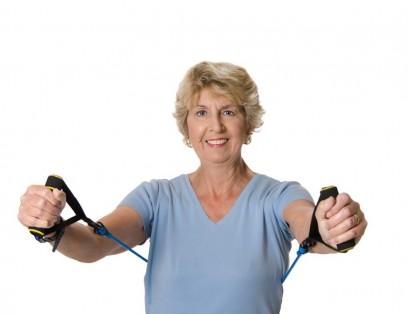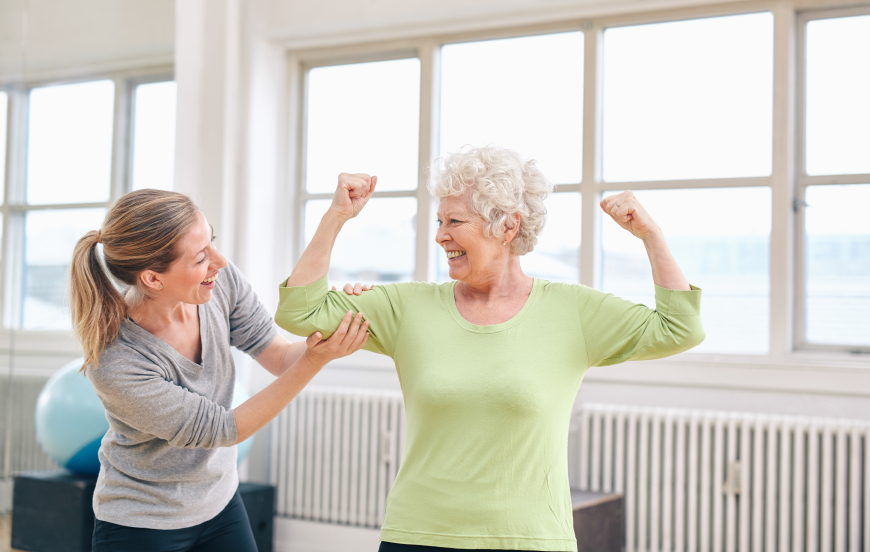When you walk into the gym and you want to improve your heart health, you know where to go. The cardio machines.
If you want a muscular physique, you head to the weights.
But what kind of exercise should you do if you want to live longer? Penn State researchers believe they have the answer.
A massive new study examined the workout habits of 30,000 seniors for five years. It found that older folks who did strength training twice a week cut their odds of dying from any cause almost in half.1
People who did strength training at least two days a week were 46% less likely to die from any cause. They were 41% less likely to die from heart disease, and 19% less likely to die from cancer.
The research was published in the journal Preventive Medicine.
“The secret to a longer and healthier life may not be available in pill form, but it may look like a barbell,” said Dr. Jennifer Kraschnewski. She is an assistant professor of medicine and public health sciences at Penn State College of Medicine. Dr. Kraschnewski led the study.
While the study didn’t prove cause and effect, Dr. Kraschnewski says there’s clear connection between strength training and longer life. “Strength training can substantially decrease mortality risk,” she said.
You don’t have to go to the gym to do strength training. Push-ups, pull-ups, abdominal crunches, lunges, and squats are excellent exercises that build strength and do not require equipment.
Resistance bands are another inexpensive and simple way to perform strength training for all the body’s major muscles. Resistance bands are available at any sporting goods store. You can also find them online.

Above: Resistance band training
Strength Training Done Right
Besides longevity, there are other health benefits of strength training:2
Improved bone density. Strength training improves the flow of blood to bones.
More muscle mass. Muscle mass decreases with age. Strength training stops this deterioration—and stops muscle from turning to fat.
Boosts your quality of life. You will have increased ability to perform normal daily activities. Strength training also helps control your weight.
Strength training can be dangerous when done incorrectly. The National Institutes of Health offers this advice:3
- Avoid locking the joints when using weights.
- For exercises that require a chair, make sure to choose one that is sturdy and stable enough to support your weight during exercise.
- Talk to your doctor if you are unsure about whether a particular exercise is safe for you. This is especially true if you’ve had hip, knee, or back surgery.
- When using weights, take three seconds to lift or push it into place. Hold the position for one second. Take another three seconds to return to your starting position. Don’t drop the weight. It’s dangerous and you’ll get less benefit from the exercise.
- Breathe out as you lift or push. Breathe in as you relax.
- Don’t hold your breath during strength exercises. This can raise your blood pressure, especially if you have heart disease.
- Use smooth, steady movements. Avoid jerking or thrusting.
Editor’s Note: Want to know more about how to live longer and healthier? Go here to get all details on how to ramp up your body’s production of this age-reversing compound all on your own—without a doctor.
In Good Health,

Angela Salerno
Executive Director, INH Health Watch
Like this Article? Forward this article here or Share on Facebook.
References:
1https://consumer.healthday.com/fitness-information-14/weight-lifting-health-news-290/pumping-iron-could-lengthen-seniors-lives-710455.html
2http://www.active.com/fitness/articles/5-benefits-of-weight-training
3http://nihseniorhealth.gov/exerciseandphysicalactivityexercisestotry/strengthexercises/01.html

